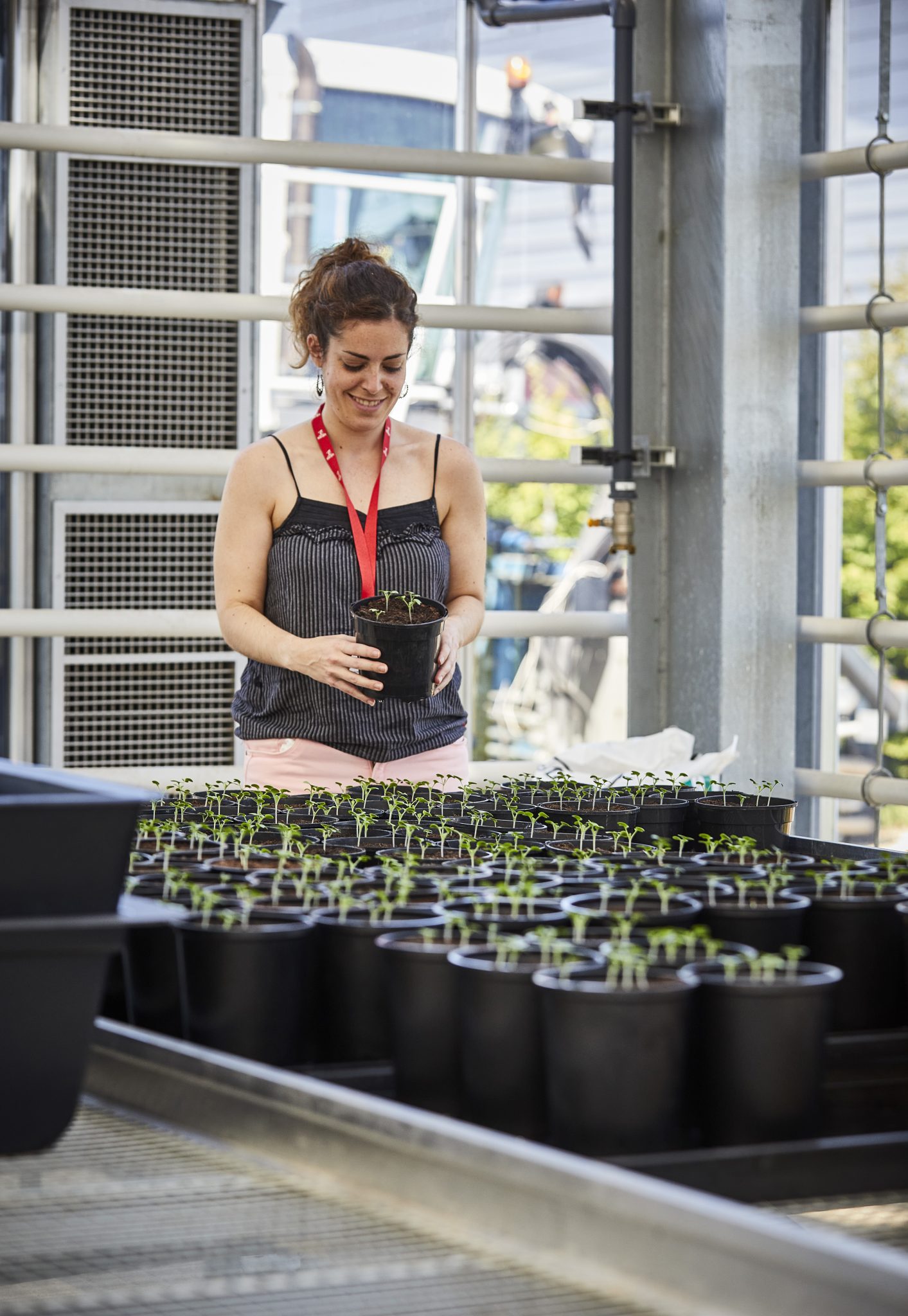Adopting practices and specialised agricultural machinery
Some conservation and regen-ag practices require the use of specialised agricultural machinery, such as direct drills and strip-till cultivators. George Sly, Managing Director of Horizon Agriculture, discussed how their machinery aims to assist regenerative, sustainable and precision cultivation, designing and manufacturing implements at their site in Lincolnshire. This includes direct seed drills, strip-till cultivators, and liquid fertiliser tanks. Mr Sly explained the importance of combining agricultural engineering expertise with precision technology, to meet the needs of farmers who are ready to adopt more sustainable agricultural practices.
He gave examples of how they design drills to use the right planting depth for each seed, and the impact this has on final revenues per ha. He also discussed how critical it is for drills to apply the appropriate downforce around seeds for optimum germination conditions, and that precision-applied liquid fertilisers can potentially deliver great savings in nitrogen application.
Reducing soil compaction
Dr Paula Misiewicz, Senior Lecturer at Harper Adams University, presented work that academics are undertaking to reduce soil compaction. Compaction has an impact on soil structure, disrupting soil pores which affect water infiltration rates, tillage drought forces, and ultimately reducing crop yields. Soil compaction costs the agricultural sector in England and Wales around £1 billion per year.
The work at Harper Adams focuses on reducing traffic via Control Traffic Farming (CTF), using tracks to spread pressure and reduce load, or reduced tyre pressure. The research, which started in 2011, has demonstrated that –
- Yields are higher with improved traffic systems (limiting traffic to 15% of cultivated area) and low tyre pressure (7% and 4% increase, respectively)
- CTF tends to promote soil health
- Deep/shallow tillage have significant impact on soil health
- Zero tillage will cause yield reduction in the first five years, but after the soil has recovered its yield will outperform other forms of tillage
- Zero tillage and CTF plus reduced tyre pressure can increase Soil Organic Content
Dr Misiewicz also mentioned that autonomous low mass vehicles can also help to reduce soil compaction, whilst providing lower costs of production, as demonstrated through the Hands-Free Hectare and Hands-Free Farm projects.
Transforming traditional operations using unmanned vehicles
Ole Green, Founder of Agrointelli, spoke about how robots such as their Robotti could drastically change operations traditionally achieved through tractor-mounted implements. Their systems are fully unmanned on wheels, able to perform various operations including drilling, planting, weeding, spraying, and mowing. It has been designed using a model-based engineering approach of optimum size relative to cost, which delivers high uniformity and minimises soil compaction.
The robot also records key data for farmers using cameras and sensors, allowing full control of environmental and economic impact of production. Similar robots available in the market are produced by companies such as Naïo Technologies (French) and the solar-powered FarmDroid (Danish).
Maximising farm and business diversity
Owner of Regen Ben, Ben Taylor-Davies’ speech was a breath of fresh air in the afternoon. Ben explained how Townsend Farm has implemented a range of regen ag practices – intercropping to maintain an understory of clover, minimising soil disruption and encouraging a permanent vegetative layer, and keeping a flerd of mixed cows, goat and sheep, to name a few. Limiting disturbance, providing a soil armour, maximising farm diversity, maintaining living roots, and integrating animals are his five principles to maintaining soil health.
Investment has been made in increasing the farm’s resilience by diversifying into a variety of alternative cropping systems, including agroforestry, tea production, and wine production. Additionally, they have diversified revenue streams, including a glamping site and microbrewery. The result of all this is that Townsend Farm is a profitable business. It was a pleasure to hear Ben speak.
Take-home message
The event offered a glimpse into what I hope UK agriculture will evolve towards – a sector with sustainable food production at its core, where new technologies are implemented to increase efficiency and productivity whilst reducing demanding field work, and where we no longer take nature for granted.












